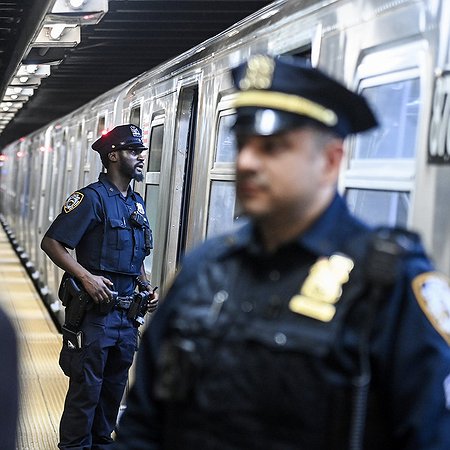Law Enforcement, Elected Officials Criticize Due Process
Law enforcement and elected officials bemoaned the due process afforded by New York’s criminal justice system after a judge opted not to set bail in a case where a man was charged with assaulting a police officer in Yonkers.
The Briefing

Law enforcement and elected officials bemoaned the due process afforded by New York’s criminal justice system after a judge opted not to set bail in a case where a man was charged with assaulting a police officer in Yonkers. The comments clarify the position of pro-carceral voices on bail reform: they do not care about the statutory purpose of bail, instead hoping for a world where anyone charged with a crime is not afforded due process and is instead “punished” immediately with pretrial detention. The case out of Yonkers presents a compelling example of the bail system in New York working as intended, as a judge used his discretion to make a decision about what was necessary to ensure someone’s return to court, and the man attended his next court date.
An example of the system working as intended
Law enforcement officials complain that the story is evidence that New York’s bail system is not working. In fact, the story is crystal-clear proof of the system working well. The statutory purpose of bail in New York is not to punish people for crimes they may not have committed. The purpose is to ensure someone’s return to court. In this case, prosecutors asked a judge to set bail on a bail-eligible charge of second-degree assault. The judge used the discretion provided in state laws to determine the most reasonable conditions to ensure the man charged with a crime would make his next court date. In this case, he decided to impose a GPS monitor so the man could attend a job interview. The man appeared at his next court date.
The judge’s decision produced health, safety, and taxpayer savings. Pretrial detention can increase the likelihood of recidivism, produces housing insecurity, reduces the earning power of people who are arrested, and can be deadly. It is also expensive – the cost to incarcerate someone on Rikers Island is over $500,000 per year.
Law enforcement does not believe in due process
The story is the latest example of law enforcement’s pro-carceral, unprincipled arguments about New York’s bail system. Several law enforcement officers and elected officials give bizarre quotes about the incident that fearmonger and demonize the man accused of assaulting a police officer. The overarching sentiment is that anyone charged with a crime should be “punished” immediately with indefinite pretrial detention. This position flies in the face of due process and rights protected by the United States and New York constitutions.
The officials also criticize a judge for exercising his statutory discretion just months after a law enforcement PR campaign that lambasted lawmakers for not giving judges enough discretion. The disingenuous campaign led to Gov. Kathy Hochul’s senseless rollbacks. Law enforcement does not actually care about judicial discretion. What law enforcement cares about is more people in jail pretrial, and they will make any argument, principled or not, to advocate for that goal.







